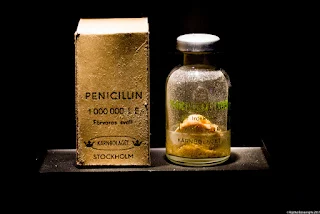Hey there! Let's talk about the evolution of pharmacy, one of the most important scientific breakthroughs of the past 300 years. Pharmacy is an awesome healthcare profession that helps patients understand different medications and treatment methods. It's crazy that this field started out as simple and remote as the cavemen's methods! But over time, humans have learned from instinct and observation, and now we have a proud profession that parallels our own development.






In 1841, Jacob Bell formed the Pharmaceutical Society of Great Britain. The new Society was involved in lobbying for legislation to control the registration of chemists and the control of the sale of poisons.
The importance of this Act was that it defined clearly that Pharmacy was to be controlled by pharmacists through their society and denied the medical council the power they had desired to examine and register all those in any way concerned with the practice of medicine or pharmacy.


It's fascinating to see how pharmacy has evolved over the centuries. From primitive methods to the highly advanced technology and clinical breakthroughs of today, pharmacy has come a long way. The development of pharmaceutical manufacturing and the discovery of antibiotics have significantly impacted human health and life expectancy.
In addition, the role of pharmacists has evolved beyond simply dispensing medication. Today, they play a vital role in patient care, providing education and counseling on medication use and helping to ensure patient safety.
As we look to the future, it's exciting to see the potential for even more advancements in pharmacy, such as personalized medicine and targeted therapies. Clinical and technology breakthroughs are occurring at a record pace, building on the power of artificial intelligence and robotics.

FAQS:
1. What is the evolution of pharmacy?
The evolution of pharmacy refers to the historical development of the field from primitive medicine to modern pharmaceutical advancements. It includes the use of natural remedies, early medical documentation, the establishment of apothecaries, and the rise of pharmaceutical manufacturing and clinical breakthroughs.
2. How did pharmacy begin in ancient times?
In ancient times, diseases were believed to be caused by evil spirits and divine punishment. Early humans used natural substances like herbs to treat illnesses. Historical pharmaceutical records, such as the Kahun Papyrus, Ebers Papyrus, and clay tablets, documented early medicinal practices.
3. What was the significance of Theriac in early pharmacy?
Theriac was an herbal jam containing 64 different ingredients and was considered a cure-all for many diseases. It played a crucial role in early pharmaceutical formulations and was widely used for centuries.
4. What is the four-humors theory in pharmacy history?
The four-humors theory, proposed by the Greeks, suggested that health and disease were determined by the balance of:
- Phlegm (moist & cold) – from the brain
- Yellow bile (warm & dry) – from the liver
- Black bile (cold & dry) – from the spleen and stomach
- Blood (moist & warm) – circulating in the body
This theory influenced medical and pharmaceutical practices for centuries.
5. When was pharmacy legally recognized in Europe?
In 1700 A.D., pharmacy practice was legally recognized in Europe. The apothecaries (early pharmacists) began organizing themselves into guilds to regulate and advance the profession.
6. How did the Pharmaceutical Society of Great Britain shape modern pharmacy?
In 1841, Jacob Bell formed the Pharmaceutical Society of Great Britain, which played a crucial role in lobbying for laws that regulated chemists and controlled the sale of poisons. This helped establish pharmacy as an independent profession, separate from medicine.
7. What major breakthrough in pharmacy happened in the 20th century?
The 20th century saw the industrialization of pharmaceutical manufacturing in the US and the discovery of antibiotics like Penicillin by Alexander Fleming, which revolutionized the treatment of infections and saved millions of lives.
8. How has the role of pharmacists evolved?
Pharmacists have moved beyond simply dispensing medication. Today, they play a key role in patient care, providing medication education, counseling, and ensuring patient safety in collaboration with healthcare professionals.
9. What are the latest advancements in pharmacy?
Modern pharmacy is advancing rapidly with innovations like:
- Personalized medicine (customized treatments for individuals)
- Targeted therapies (precision medicine for diseases like cancer)
- Artificial intelligence (AI) and robotics in drug development and patient care
10. What is the future of pharmacy?
The future of pharmacy is exciting, with developments in biotechnology, nanomedicine, and AI-driven healthcare. These advancements will lead to more effective treatments, improved drug safety, and better patient outcomes.

.jpeg)
.jpeg)
.jpeg)


0 Comments